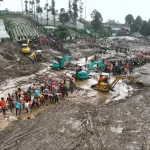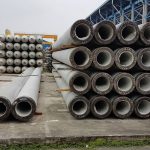Liga Asuransi – Hello risk takers, how are you? I hope your business is running well.
As a senior insurance broker, I want to discuss risk and insurance for animal feed transportation. If you are interested in this article, please share it with your friends so they understand as much as you do. If you need to discuss this in person with me, please give me a call.
We all know that the animal feed industry is crucial for global food supply chains, supporting livestock, poultry, and aquaculture. It provides essential animal health and productivity nutrition, supplying vital vitamins, minerals, proteins, and energy.
Livestock and poultry rely on quality feed for efficient meat, milk, and egg production, ensuring a robust food supply. Moreover, this industry significantly contributes to the global economy, offering employment across various sectors and impacting the profitability of farming. As the world’s population grows, the demand for animal-derived protein rises, emphasizing the importance of a reliable and efficient animal feed industry for sustainable food security.
The animal feed industry is pivotal in Indonesia’s agriculture and economy. It boosts agricultural productivity by providing essential nutrition to livestock meeting the demand for meat, milk, and eggs. This industry contributes significantly to economic growth, offering jobs and benefiting related sectors. It ensures food security by supporting protein production, fosters livestock sector development, and opens export opportunities, enhancing the nation’s economy.
Embracing sustainability practices, it addresses environmental challenges while ensuring regulatory compliance for consumer safety and international trade. Indonesia’s animal feed industry is vital for nutrition, economic progress, and sustainable livestock farming, making it a cornerstone of the nation’s prosperity.
THE RISKS OF ANIMAL FEED TRANSPORTATION
Addressing the most prevalent risks in the transportation of animal feeds, including contamination, spoilage, and damage, is crucial for ensuring the quality and safety of the feed products. Here’s how these risks can occur and how to mitigate them:
- Contamination:
Causes: Contamination can result from exposure to foreign substances, such as chemicals, pathogens, or allergens, during transportation. It can also occur due to improper handling, storage, or loading and unloading procedures.
Mitigation:
- Implement strict hygiene and sanitation protocols for transport vehicles, containers, and equipment.
- Properly clean and disinfect containers and vehicles before loading feed.
- Ensure that feed is segregated from potentially contaminating substances, such as pesticides or chemicals.
- Train personnel in proper handling procedures and contamination prevention.
- Spoilage:
Causes: Spoilage typically occurs when animal feeds are exposed to moisture, humidity, or temperature extremes, leading to mold growth, bacterial contamination, and a loss of nutritional value.
Mitigation:
- Use appropriate packaging that protects against moisture and humidity.
- Maintain temperature and humidity control during transport, especially for feeds prone to spoilage.
- Regularly inspect feed for signs of spoilage before, during, and after transportation.
- Consider using desiccants or moisture-absorbing agents in packaging to control moisture levels.
- Physical Damage:
Causes: Physical damage can result from rough handling, improper stacking, or accidents during transportation. It may lead to crushed or broken pellets, compromised packaging, and reduced feed quality.
Mitigation:
- Properly secure and stack feed containers to prevent shifting and damage during transit.
- Train personnel in safe handling and loading/unloading procedures.
- Use durable packaging materials that can withstand the rigors of transportation.
- Regularly inspect packaging for signs of wear and tear.
- Temperature Fluctuations:
Causes: Some types of animal feeds, especially those with sensitive ingredients, can be adversely affected by temperature fluctuations during transport. High temperatures can lead to nutrient degradation while freezing temperatures can cause clumping.
Mitigation:
- Use insulated containers or refrigerated transport when necessary to maintain consistent temperatures.
- Monitor and record temperature data during transit to ensure compliance with recommended storage conditions.
- Avoid exposing feeds to extreme temperature variations during loading and unloading.
- Pest Infestations:
Causes: Insects and rodents can infiltrate feed products during transportation, leading to contamination and spoilage.
Mitigation:
- Seal containers tightly to prevent pests from entering.
- Implement pest control measures in storage facilities and transport vehicles.
- Regularly inspect feed for signs of pest infestations and take corrective actions promptly.
In addition to these risk mitigation strategies, it’s essential for transporters to follow best practices, adhere to regulatory requirements, and maintain clear records of transportation conditions and any incidents. Effective communication between transporters and feed manufacturers is also crucial to address any issues promptly and prevent quality degradation or safety risks in animal feed products.
THE ROLE OF INSURANCE IN MITIGATING RISKS
Insurance, including animal feed transportation, is a cornerstone for risk mitigation in the transport industry. Its pivotal roles include:
- Financial Protection: Insurance offers crucial financial protection. It covers costs arising from accidents, damage, or loss during transportation, shielding transporters from significant financial setbacks.
- Cargo Insurance: Tailored for goods transport, cargo insurance safeguards against risks like spoilage, contamination, theft, or damage during transit. It ensures transporters are reimbursed for cargo losses.
- Liability Coverage: In accidents causing injury, property damage, or environmental harm, liability insurance covers legal obligations. It handles legal expenses and settlements, ensuring financial stability.
- Regulatory Compliance: Many transportation operations require specific insurance coverage to comply with regulations, preventing fines and penalties.
- Risk Transfer: Insurance transfers risks to insurers, relieving transporters of financial burdens and providing stability.
- Reputation and Confidence: Adequate insurance enhances a transporter’s reputation and builds trust with clients and partners, fostering better relationships and opportunities.
- Risk Management Support: Insurers often offer risk management services, including safety training and guidance on minimizing operational risks.
- Peace of Mind: Ultimately, insurance grants peace of mind. Transporters can focus on operations and long-term goals without fear of catastrophic losses.
UNDERSTAND VARIOUS TYPE OF ANIMALS FEED
Various types of animal feeds serve distinct purposes based on the nutritional needs of the animals they are intended for. These feeds differ regarding ingredients, formulations, and characteristics, impacting their risk profiles during transportation. Let’s discuss some common types of animal feeds and their purposes, along with their associated transportation risks:
- Forage and Pasture Grasses:
Purpose: These feeds, including grasses, legumes, and hay, are primarily used for ruminant animals like cattle, sheep, and goats. They provide fiber, energy, and essential nutrients.
Transportation Risks: Forage and pasture grasses are typically bulk materials susceptible to spoilage, mold growth, and heat damage during transportation. Moisture levels and proper packaging are critical factors to prevent deterioration.
- Concentrates:
Purpose: Concentrates are high-energy feeds that supplement livestock and poultry diets, often in pellet or grain form. They are rich in carbohydrates and protein.
Transportation Risks: Concentrates are dense and can be prone to moisture absorption, leading to clumping, caking, and spoilage. Risk factors include exposure to humidity and temperature fluctuations during transport.
- Complete Feeds:
Purpose: Complete feeds are formulated to provide a balanced diet with all necessary nutrients. They are commonly used for poultry and swine.
Transportation Risks: Complete feeds are typically pelleted or crumbled, making them more stable during transport. However, they can still be affected by moisture, temperature extremes, and physical damage, which can compromise their nutrient content.
- Silage:
Purpose: Silage is a fermented forage feed commonly used for dairy cattle and sometimes other livestock. It is harvested and stored in airtight conditions to promote fermentation.
Transportation Risks: Silage can be sensitive to exposure to oxygen, which can lead to spoilage and mold growth. Ensuring airtight storage and transportation containers is crucial.
- Specialty Feeds:
Purpose: Specialty feeds are formulated for specific animal groups or purposes. Examples include calf starter feeds, horse feeds, and aquaculture feeds.
Transportation Risks: The risk profiles of specialty feeds vary widely based on their ingredients and formulations. Moisture sensitivity, ingredient stability, and contamination risks are factors to consider.
- Medicated Feeds:
Purpose: Medicated feeds contain additives or medications to prevent or treat specific animal health issues. They are used in various livestock sectors.
Transportation Risks: Medicated feeds require strict compliance with regulatory guidelines. Risks include improper mixing, contamination, and ensuring accurate labeling during transportation.
- Organic and Non-GMO Feeds:
Purpose: These feeds cater to consumer demands for organic and non-genetically modified (GMO) animal products.
Transportation Risks: Ensuring the segregation and labeling of organic or non-GMO feeds during transport is essential to maintain their certification status.
THE CARGO RISKS
Cargo risks associated with the transportation of animal feed are diverse and can result in financial losses for businesses involved in this industry. To mitigate these risks, insurance plays a crucial role. Here’s an explanation of cargo risks and the corresponding insurance coverage for animal feed transportation:
Cargo Risks:
- Contamination: Animal feed can become contaminated during transport due to exposure to harmful substances, such as chemicals, pesticides, or allergens. Contamination can render the feed unsafe for consumption.
- Spoilage: Moisture, temperature fluctuations, or improper handling can lead to the spoilage of animal feed. Spoiled feed loses its nutritional value and may become unusable.
- Physical Damage: Animal feed, especially pellets or delicate formulations, can be damaged during loading, unloading, or transit. Physical damage may include breakage, crushing, or other forms of deterioration.
- Theft and Pilferage: Animal feed can be a target for theft or pilferage, especially if it’s valuable or easily accessible. Such incidents can result in significant financial losses.
- Accidents: Transportation accidents, such as vehicle collisions, can destroy or lose animal feed cargo. This risk is particularly relevant for bulk transport.
Insurance Coverage:
To address these cargo risks, businesses involved in animal feed transportation typically rely on several types of insurance coverage:
- Cargo Insurance: Cargo insurance covers the value of the transported animal feed. It protects against losses or damage caused by accidents, theft, contamination, spoilage, or other unforeseen events during transit. Cargo insurance is crucial for safeguarding the financial interests of transporters.
- Contamination Coverage: Some cargo insurance policies offer specialized contamination coverage to address the risk of contamination during transport. This coverage can help cover costs related to contamination incidents and is especially important for sensitive cargo like animal feed.
- Spoilage Insurance: For feeds prone to spoilage, spoilage insurance provides coverage for losses resulting from spoilage during transit. This coverage is essential to protect the value of perishable feeds.
- Theft and Pilferage Coverage: Cargo insurance often includes coverage for theft and pilferage. It can reimburse transporters for the value of stolen or pilfered animal feed.
- Accident Coverage: In the event of accidents, commercial auto insurance can also cover cargo loss and damage resulting from vehicle collisions.
Transporters of animal feed must work closely with insurance professionals, such as insurance brokers, to tailor insurance policies to their specific needs. The right insurance coverage ensures that financial losses resulting from cargo risks are mitigated, allowing businesses to maintain the integrity of their supply chains and meet their obligations to customers and partners in the animal feed industry.
SAMPLE OF INSURANCE CASES
What Went Wrong:
A transportation company was hired to deliver a large shipment of specialized organic poultry feed to a poultry farm. During the transportation process, there was an unforeseen issue with the sealing of the feed containers. Moisture from heavy rain penetrated the packaging, leading to contamination of the organic feed.
Insurance Role in Mitigating Losses:
Cargo Insurance: The transportation company had a cargo insurance policy that covered the value of the organic poultry feed. When the contamination issue was discovered upon delivery, they filed a claim with their insurer.
Inspection and Documentation: To support the claim, the transportation company documented the condition of the cargo before and after transportation. This documentation, including photographs and temperature records, helped establish the extent of the damage.
Claims Processing: The insurance company promptly processed the claim, assessing the value of the contaminated feed based on its market price. They also reviewed the transportation company’s adherence to industry best practices and regulatory requirements.
Financial Reimbursement: The cargo insurance policy reimbursed the transportation company for the value of the contaminated feed, covering the losses incurred during transit.
Analysis:
In this case, the issue of contaminated animal feed occurred despite the transportation company’s efforts to maintain proper packaging and handling conditions. However, the cargo insurance policy was crucial in mitigating the financial losses associated with the incident. It allowed the transportation company to recover the cost of the damaged feed, which helped maintain the trust and satisfaction of their client, the poultry farm.
It’s important to note that insurance claims processes can vary based on the specific policy terms and conditions, as well as the circumstances of the incident. Proper documentation, adherence to regulatory standards, and appropriate insurance coverage are all critical factors in successfully mitigating losses in animal feed transportation incidents.
WHY INSURANCE BROKER IS IMPORTANT FOR ANIMAL FEED TRANSPORTATION?
Utilizing the services of an insurance broker is highly beneficial when seeking insurance coverage for animal feed transportation, as it offers numerous advantages that can help you navigate the complexities of the insurance market effectively. Here’s why using an insurance broker is essential for this specific industry:
- Industry Expertise:
Insurance brokers specialize in various industries and have in-depth knowledge of the specific risks, challenges, and regulations that businesses in those industries face. Brokers understand the risks of transporting perishable and sensitive cargo for animal feed transportation.
- Access to a Wide Range of Insurers:
Brokers typically have relationships with multiple insurance companies, including large and niche providers. This broad network allows them to access a wide range of insurance options tailored to the needs of animal feed transporters.
- Tailored Coverage:
Brokers work closely with clients to understand their unique circumstances and risk profiles. They then use this information to customize insurance coverage that matches the client’s needs. This ensures you get a range tailored to your specific operations, cargo, and risk tolerance.
- Comparative Analysis:
Insurance brokers can compare different insurance policies, including coverage limits, deductibles, premiums, and terms and conditions. This helps you make informed decisions about the most suitable coverage for your business.
- Cost Savings:
Brokers have the expertise to negotiate competitive insurance premiums on your behalf. They can help you secure cost-effective coverage without compromising the quality or scope of your insurance protection.
- Risk Assessment and Mitigation:
Brokers can assist you in identifying potential risks and developing effective risk management strategies. They can provide guidance on best practices for minimizing risks while transporting animal feeds.
- Regulatory Compliance:
Insurance brokers stay updated on the ever-changing regulatory landscape. They can ensure that your insurance coverage complies with all relevant animal feed transportation laws and regulations.
- Claims Assistance:
Insurance brokers act as intermediaries between you and the insurance company in the event of a claim. They can help expedite the claims process, ensuring you receive a fair and timely settlement.
- Ongoing Support:
Insurance brokers provide ongoing support throughout the life of your policy. They can help you adapt your coverage as your business evolves, assisting with policy renewals, adjustments, and additional coverage needs.
- Peace of Mind:
Having an insurance broker by your side provides peace of mind, knowing that you have a dedicated professional advocating for your best interests and helping you navigate the complexities of insurance.
In summary, an insurance broker’s specialized expertise, industry connections, and commitment to personalized service make them invaluable partners for animal feed transporters. They ensure you have the right insurance coverage to protect your business and assets while minimizing risks and financial exposure.
One of the leading insurance brokers in Indonesia focusing on Animal feed transportation is L&G Insurance Broker.
For your insurance needs in Indonesia, call L&G Insurance Broker now!
—
LOOKING FOR INSURANCE PRODUCTS? DON’T WASTE YOUR TIME AND CONTACT US RIGHT NOW
L&G HOTLINE 24 HOURS: 0811-8507-773 (CALL – WHATSAPP – SMS)
website: lngrisk.co.id
E-mail: customer.support@lngrisk.co.id
—














